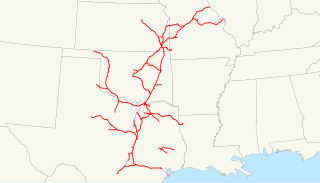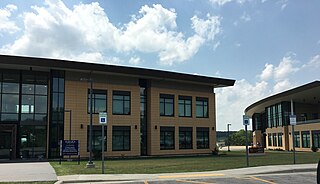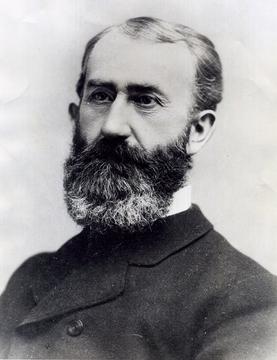Related Research Articles

Kansas is a state in the Midwestern United States. Its capital is Topeka, and its most populous city is Wichita. Kansas is a landlocked state bordered by Nebraska to the north; Missouri to the east; Oklahoma to the south; and Colorado to the west. Kansas is named after the Kansas River, which in turn was named after the Kansa Native Americans who lived along its banks. For thousands of years, what is now Kansas was home to numerous and diverse Native American tribes. Tribes in the eastern part of the state generally lived in villages along the river valleys. Tribes in the western part of the state were semi-nomadic and hunted large herds of bison.

Indian Territory and the Indian Territories are terms that generally described an evolving land area set aside by the United States government for the relocation of Native Americans who held original Indian title to their land as a sovereign independent state. The concept of an Indian territory was an outcome of the U.S. federal government's 18th- and 19th-century policy of Indian removal. After the American Civil War (1861–1865), the policy of the U.S. government was one of assimilation.

Jackson County is located in the western portion of the U.S. state of Missouri, on the border with Kansas. As of the 2020 census, the population was 717,204. making it the second-most populous county in the state.

Cass County is a county located in the western part of the U.S. state of Missouri and is part of the Kansas City metropolitan area. As of the 2020 census, the population was 107,824. Its county seat is Harrisonville; however, the county contains a portion of Kansas City, Missouri. The county was organized in 1835 as Van Buren County, but was renamed in 1849 after U.S. Senator Lewis Cass of Michigan, who later became a presidential candidate.

Doniphan County is the most northeastern county in the U.S. state of Kansas. Its county seat is Troy, and its most populous city is Wathena. As of the 2020 census, the county population was 7,510. The county was named after Alexander Doniphan, a Mexican–American War hero. It is bounded on the east by the Missouri river, south by Atchison county, and west by Brown county.

The Kaw Nation, Oklahoma is a federally recognized Native American tribe in Oklahoma and parts of Kansas. It comes from the central Midwestern United States. It has also been called the "People of the South wind", "People of water", Kansa, Kaza, Konza, Conza, Quans, Kosa, and Kasa. Their tribal language is Kansa, classified as a Siouan language.

Arrowhead Stadium is an American football stadium in Kansas City, Missouri. It primarily serves as the home venue of the Kansas City Chiefs of the National Football League (NFL). The stadium has been officially named GEHA Field at Arrowhead Stadium since March 2021, following a naming rights deal between GEHA and the Chiefs. The agreement began at the start of the 2021 season and ends in January 2031 with the expiration of the leases for the Chiefs and Royals with the stadium's owner, the Jackson County Sports Complex Authority.

The Territory of Kansas was an organized incorporated territory of the United States that existed from May 30, 1854, until January 29, 1861, when the eastern portion of the territory was admitted to the Union as the free state of Kansas.

The Missouri–Kansas–Texas Railroad was a Class I railroad company in the United States, with its last headquarters in Dallas, Texas. Established in 1865 under the name Union Pacific Railroad (UP), Southern Branch, it came to serve an extensive rail network in Texas, Oklahoma, Kansas, and Missouri. In 1988, it merged with the Missouri Pacific Railroad; today, it is part of UP.

Charles Nathaniel Haskell was an American lawyer, oilman, and politician who was the first governor of Oklahoma. As a delegate to Oklahoma's constitutional convention in 1906, he played a crucial role in drafting the Oklahoma Constitution and gaining Oklahoma's admission into the United States as the 46th state in 1907. A prominent businessman in Muskogee, he helped the city grow in importance. He represented the city as a delegate in both the 1906 Oklahoma convention and an earlier convention in 1905 that was a failed attempt to create a U.S. state of Sequoyah.

The Osage Nation is a Midwestern American tribe of the Great Plains. The tribe developed in the Ohio and Mississippi river valleys around 700 B.C. along with other groups of its language family. They migrated west after the 17th century, settling near the confluence of the Missouri and Mississippi rivers, as a result of Iroquois expansion into the Ohio Country in the aftermath of the Beaver Wars.

The Absentee Shawnee Tribe of Indians of Oklahoma is one of three federally recognized tribes of Shawnee people. Historically residing in what became organized as the upper part of the Eastern United States, the original Shawnee lived in the large territory now made up of Pennsylvania, Kentucky, Tennessee, Ohio, Indiana, Illinois, and neighboring states. In total, they occupied and traveled through lands ranging from Canada to Florida, and from the Mississippi River to the eastern continental coast.
Black Bob was a Native American Shawnee Chief. His band was a part of the Hathawekela division of the Shawnee. He was known for being one of the last Shawnee to resist leaving for the Indian Territory, and for keeping his band together until his death, holding their lands in common, as they moved between Missouri, Arkansas, and the Black Bob Reservation in Kansas.
The timeline of Kansas details past events that happened in what is present day Kansas. Located on the eastern edge of the Great Plains, the U.S. state of Kansas was the home of sedentary agrarian and hunter-gatherer Native American societies, many of whom hunted American bison. The region first appears in western history in the 16th century at the time of the Spanish conquest of the Aztec Empire, when Spanish conquistadors explored the unknown land now known as Kansas. It was later explored by French fur trappers who traded with the Native Americans. It became part of the United States in the Louisiana Purchase of 1803. In the 19th century, the first American explorers designated the area as the "Great American Desert."

Gomer Griffith Smith was an American politician and a U.S. Representative from Oklahoma from 1937 to 1939.

The Iowa Reservation of the Iowa Tribe of Kansas and Nebraska straddles the borders of southeast Richardson County in southeastern Nebraska and Brown and Doniphan Counties in northeastern Kansas. Tribal headquarters are west of White Cloud, Kansas. The reservation was defined in a treaty from March 1861. Today the tribe operates Casino White Cloud on the reservation.
On the eve of the American Civil War in 1861, a significant number of Indigenous peoples of the Americas had been relocated from the Southeastern United States to Indian Territory, west of the Mississippi. The inhabitants of the eastern part of the Indian Territory, the Five Civilized Tribes, were suzerain nations with established tribal governments, well established cultures, and legal systems that allowed for slavery. Before European Contact these tribes were generally matriarchial societies, with agriculture being the primary economic pursuit. The bulk of the tribes lived in towns with planned streets, residential and public areas. The people were ruled by complex hereditary chiefdoms of varying size and complexity with high levels of military organization.
Tony Luetkemeyer is an attorney and the state senator for the 34th Senatorial District of the Missouri Senate, representing Buchanan and Platte Counties in Northwest Missouri. He is a member of the Republican Party.

John DeBras Miles was an American Indian agent at the Kickapoo people Agency and at the Darlington Agency for the Cheyenne and Arapaho.

Bela Metcalfe Hughes was an American lawyer, businessman and politician. Hughes played an important role in connecting the American West to the rest of the country with stagecoach lines, as well as in the early legal development of Colorado.
References
- 1 2 Thoburn, Joseph Bradfield (1916). A Standard History of Oklahoma. Vol. V. American Historical Society. p. 1828. Retrieved 2013-05-22.
- ↑ "Origin of County Names in Oklahoma". Chronicles of Oklahoma. Oklahoma Historical Society. March 1924. pp. 75–82. Retrieved 2013-05-17.
- ↑ "Hughes". Oklahoma Encyclopedia Online (PDF). Oklahoma Department of Libraries. 2005. Retrieved 2007-04-02.